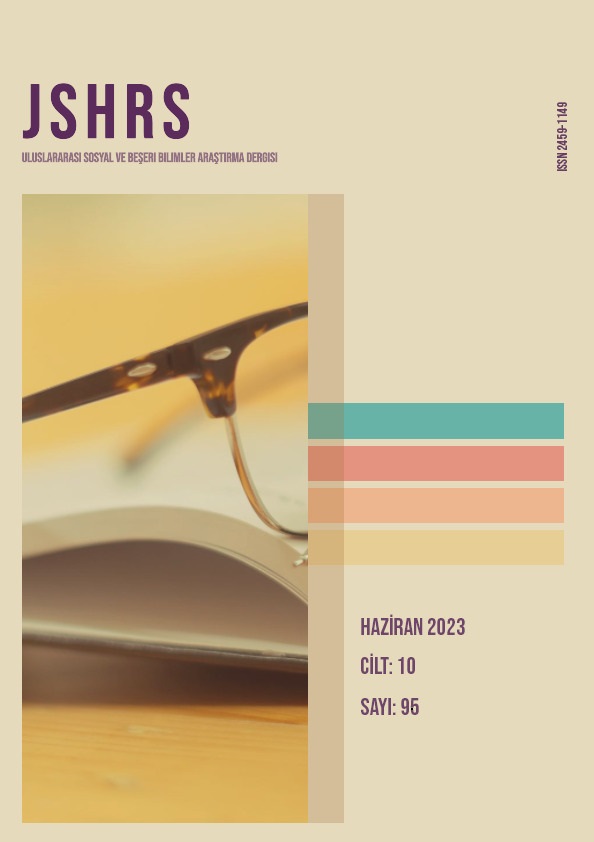Investigating the Reasons for Students' Failure in Mathematics Course
DOI:
https://doi.org/10.5281/zenodo.8112135Keywords:
Mathematics, Education, FailureAbstract
The main purpose of this research is to investigate the reasons for the failure in Mathematics courses which are observed intensively in schools and to reveal the reasons for the intensified failure in Mathematics courses. In our sample, 3 Anatolian High Schools were selected and the opinions of Mathematics teachers were added in parallel with the results of the questionnaires. When we look at the big picture, we can see that it is worth investigating the reasons why thousands of students score zero or below in mathematics in university entrance exams every year. Why we cannot teach mathematics, what are the student's interests, attitudes, and fears in this subject? The reasons why the fear of mathematics lessons in primary school continues until high school years are investigated in this project. The research is in a survey model. In the research, the reasons for the failure of the students studying in Anatolian high schools the Mathematics course were investigated. In order to realize the aim of the research, the Attitude Scale towards Mathematics on a Likert scale was applied to the students studying in Anatolian high schools. The scale was applied to a total of 250 students studying in Anatolian High Schools. The scale, which consists of a single section based on the relevant literature reviewed to collect the data, consists of 19 questions. As a result of the research, in this study in which the reasons for students' failure in mathematics course were investigated, students think that mathematics course is difficult compared to other courses, they always feel themselves under pressure in mathematics course, they do not plan to take more mathematics courses in their school life and they are always confused in a mathematics course.
References
Baykul, Y. (2000). Eğitimde ve psikolojide ölçme: Klasik test teorisi ve uygulaması. OSYM yayınları.
Baykul, Y. (2002). İlköğretimde Matematik Öğretimi (1–5 Sınıfları için), 6. Baskı, Pegem.
Boyacıoğlu, H., Köroğlu, H. & Alkan, H. (2003). İlköğretimin ilk beş sınıfında matematik etkinlikleri. http:/www.matder.org.tr.
Hacıömeroğlu, G. (2017). Matematiğe yönelik tutum ölçeği kısa formunun geçerlik ve güvenirlik çalışması. Journal of Computer and Education Research, 5(9), 84-99.
Lim, S. Y. & Chapman, E. (2013). Development of a short form of the attitudes toward mathematics inventory. Educational studies in mathematics, 82, 145-164.
McLeod, D. B. (1989). Beliefs, attitudes, and emotions: New views of affect in mathematics education. Affect and mathematical problem solving: A new perspective, 245-258.
MEB (1995). Öğretmen Değerlendirme. MEB Basımevi.
Osherson, D.N., Smith, E.E., Wilkie, O., Lopez, A. & Shafir, E. (1990). Category-based induction. Psychological review, 97(2), 185-200.
Özgüven, İ. E., 1998, Bireyi Tanıma Teknikleri, Pdrem Yayınları.
Sertöz, S. (1996). Matematiğin Aydınlık Dünyası. TÜBİTAK Popüler Bilim Kitapları.
Winch, G. (1998). Zephyrs of creative destruction: understanding the management of innovation in construction. Building research & information, 26(5), 268-279.
Wynn, K. (1992). Erratum: Addition and subtraction by human infants. Nature, 360, 768-768.
Yetkin, E. (2003). Student Difficulties in Learning Elementary Mathematics. ERIC Digest.
Online1. https://docplayer.biz.tr/215166766-Matematik-dersinde-basarili-olmanin-matematigi.html. Erişim: 20.04.2023
Downloads
Published
How to Cite
Issue
Section
License
Copyright (c) 2023 INTERNATIONAL JOURNAL OF SOCIAL HUMANITIES SCIENCES RESEARCH

This work is licensed under a Creative Commons Attribution 4.0 International License.


